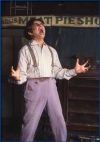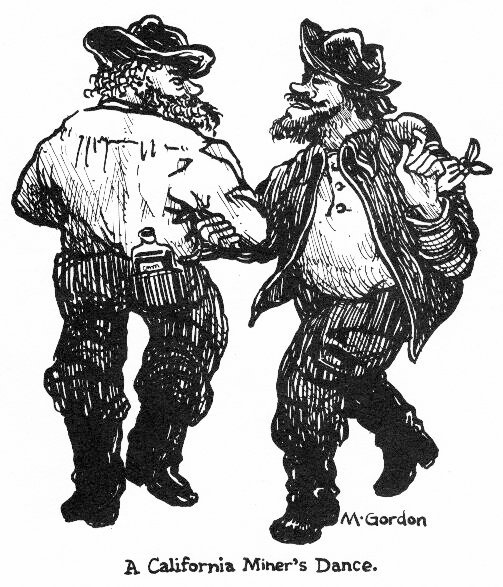Male vocal roles and ranges
Niles Silvers
Stand-by Joined: 9/27/18
#1Male vocal roles and ranges
Posted: 10/20/18 at 5:05pm
Hello, in opera the roles are traditionally written for a specific vocal range, such as bass, baritone, tenor, etc. (same as in the female roles). As far as I know, this is never varied in the standard repertoire; so you would not have a tenor role, for example, sung by a bass or baritone transposed down for him. Is the casting of roles on Broadway in the classic musicals, such as Carousel, South Pacific, etc. the same, or have there been instances where an iconic part has been adapted for a particular performer who possesses a completely different vocal range? First post, my loins have been girded.
#2Male vocal roles and ranges
Posted: 10/20/18 at 5:12pm
I don't know how drastic a change has ever happened (Bass changed for a tenor for example) but it is VERY common to have keys change dependent on who is playing the part - even for an understudy, for example.
(Your question shouldn't be met with any derision, it's well stated and perhaps, not terribly obvious if you come from another "genre", so relax your loins!)
lightsarebrightonbroadway
Understudy Joined: 8/22/18
#3Male vocal roles and ranges
Posted: 10/20/18 at 5:24pm
Keys can always be transposed and changed. Off of the top of my head I remember Anything Goes being lowered for Sutton Foster during her run and if I remember correctly, one of the Jack Kelly understudies had Santa Fe transposed for him as well.
But to actually answer your question, if the actor is who the producers are looking for then they will be sure to have them singing at their best, even if that means changing keys! (Kendra Kassabaum, for example, couldn't hit the High C in thank goodness and yet she was still a long-running and fantastic Glinda).
#4Male vocal roles and ranges
Posted: 10/20/18 at 9:56pmBecause traditional vocal ranges and types were designed for classical singers, and musical theatre now encompasses every type of music, it’s becoming more and more of a moot point. The more vocally versatile a performer is, the more roles they will be able to play. Keys might be changed occasionally, but modern day musical theatre performers tend to fare best if they have a wide vocal range and can sing classical music, rock, and pop. And now with Hamilton, rap and R&B as well!
#5Male vocal roles and ranges
Posted: 10/21/18 at 3:26am
I have it on good authority that the key for "Being Alive" is sometimes lowered if the actor playing Robert needs it. A friend of mine was offered the lower key when he auditioned for one of the Broadway revivals (because his audition was at 8 a.m.). Being a purist, he refused and sang the song in Dean Jones' key, only to have his voice crack badly on the last line. Sondheim was present and replied: "Well, if you haven't got the notes, there's nothing more to say, is there?"
My friend left, feeling humiliated. (He had done a Sondheim show on Broadway, so it's not like he was unknown to the composer.) He later attended the revival only to find the guy they eventually cast was singing in the lower key. And that's show biz.
ETA I've worked with composers who are very sensitive to the relationship between the key of a song and that of the songs that precede and follow it. They resist transposition whenever they can. But posters above are right that changing keys has always been common in popular music, including theater (as opposed to classical music, including opera).
ETA2 It occurs to me that the account of Sondheim above may make him sound cruel. I didn't get that impression when my friend told the story. I understood Sondheim's response to be more matter-of-fact than it may sound here in this medium.
Ravenclaw
Leading Actor Joined: 9/16/17
#7Male vocal roles and ranges
Posted: 10/21/18 at 4:38am
The Distinctive Baritone put it quite well, I would just add that to further complicate matters today, many composers are writing in such extremes of vocal ranges that they how little consideration for how human voices really work. Evan Hansen, for example, spans from an A2 to a Bb4 in just the song "Waving Through a Window"--and both notes are sustained and repeated. In opera, a role a with an A2 would pretty unambiguously make the role a baritone/bass role, but few baritone roles and certainly no bass roles would require a Bb4, especially one sung again and again at the climax of the song. In my opinion, many contemporary composers inadequate at conveying emotional stakes through melody and harmony compensate by pushing their performers' ranges. That's not to say that if a performer has an impressive vocal range the composer shouldn't take advantage of it, but many leading roles in contemporary musicals just expect too much of actors and inevitable take their tolls on the vocal folds.
But, yes, as others have said, changing keys is a real thing that happens in musical theatre. And 99% of the time, the audience doesn't notice. But usually, it's only a step or two (as was the case for a couple of Diana's songs in Next to Normal when Marin Mazzie took over the role) unless the role is being reconceived for someone of a different gender (like when Patina Miller played the Leading Player in Pippin)




